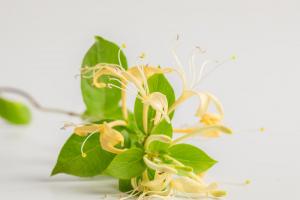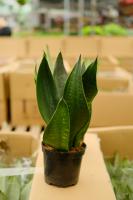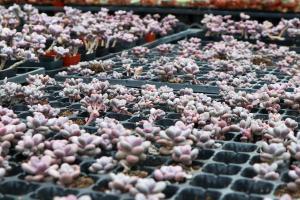Introduction
An apple tree is a kind of deciduous plant that produces fruit known as apples. Deciduous trees are those that shed their leaves annually in response to seasonal changes. In this article, we will explore the various features that make apple trees deciduous plants.
Reasons for Deciduousness
The main reason why apple trees are deciduous is the changing seasons. In cold climates, winter sets in, and temperatures plummet. As a result, the trees cannot produce food due to reduced sunlight and the freezing temperatures. Therefore, the leaves cannot perform photosynthesis and produce glucose, which provides energy to the plant. Moreover, winter is usually associated with reduced precipitation, which further limits water availability. By shedding their leaves, the apple trees reduce transpiration and conserve water.
Adaptation to Winter
Deciduousness in apple trees is an adaptation to the winter season. The trees' ability to withstand extreme conditions such as cold and ice is enhanced by their deciduous nature. They shed their leaves to reduce water loss and increase hardiness to the frost. The deciduous trees store food reserves such as starch in their trunks, branches, and roots during this period. When the next growing season comes, the trees use these reserves to generate new growth and leaves.
Response to Photoperiodism
Photoperiod is the physiological response of plants to the length of day and night in the environment. Apple trees are deciduous because they respond to photoperiodism. In the fall, the trees detect the shorter days and longer nights. They start preparing for the winter by shedding their leaves, reducing metabolic activities, and entering a dormant phase. During this period, the tree redirects nutrients towards the trunk, branches, and roots.
Avoiding Drought Stress
Drought stress is a common challenge in areas with long dry spells. Deciduous apple trees shed their leaves as a way of reducing water loss and avoiding drought stress. The leaves are the main organs responsible for transpiration, which is the loss of water to the environment. During periods of limited water availability, the apple trees reduce transpiration by shedding their leaves.
In Conclusion
Deciduousness is an essential trait of apple trees. It is a way of adapting to the environment, preparing for drought or winter, and regulating growth. The trees' response to changing environmental conditions ensures that they are thriving and productive. Understanding what makes an apple tree a deciduous plant can help growers take the necessary steps to ensure their trees' health and productivity.

 how many times do yo...
how many times do yo... how many planted tre...
how many planted tre... how many pine trees ...
how many pine trees ... how many pecan trees...
how many pecan trees... how many plants comp...
how many plants comp... how many plants can ...
how many plants can ... how many plants and ...
how many plants and ... how many pepper plan...
how many pepper plan...

































